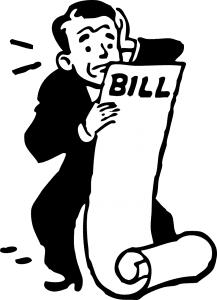What is an Automatic Stay and How Does it Help Protect My Assets When Filing for Bankruptcy?

When people who have been through a bankruptcy proceeding look back on their decision, they say that one of the most important driving forces was the calls that they were getting from debt collectors. Anybody who has gotten themselves into serious trouble with money knows what this feels like – the phone rings incessantly and the people on the other end are threatening, mean and relentless. They say that they are going to take your car and your home, and say they will call your employer and garnish your wages. In the face of this type of intimidation, it is no wonder that filing for bankruptcy can be such a relief. Almost as soon as your bankruptcy attorney processes your paperwork, an automatic stay is put in place and you will be free of the threat of garnishment. If you are not sure what an automatic stay is, or how it helps protect your assets when filing for bankruptcy, the attorneys at Reinherz Law are here to help you understand.
No matter whether you file for Chapter 7, Chapter 11, or Chapter 13 bankruptcy, as soon as the papers are filed the courts grant you an automatic stay. This is a legal term to describe an order to all creditors to cease and desist their credit collection efforts, including any repossessions, wage garnishments or even lawsuits that they had been in the midst of pursuing. The automatic stay is one of the most impactful and empowering things that can happen to a person whose money issues have gotten out of control: it returns your sense of power, and is taken so seriously by the bankruptcy courts that if a creditor continues their efforts you can alert the bankruptcy court and file a claim against them for violating the order.
When an automatic stay is issued it stays in effect throughout the entire bankruptcy process. Since the bankruptcy is designed to free you as a debtor from many of your financial entanglements, there is a good chance that the debts that creditors are threatening you about will end up being discharged, and you will no longer need to worry about garnishments or repossessions of the assets that are important to you.
There are some exceptions to the effects of an automatic stay, and they largely have to do with whether you have previously filed for bankruptcy, and when those previous filings took place. It is also important to note that filing for bankruptcy does not waive your obligations to pay for alimony, child support, tax liens and some other types of debts. For more information on your own obligations and how the automatic stay will protect you, contact the attorneys at Reinherz Law to make an appointment to discuss your situation.









